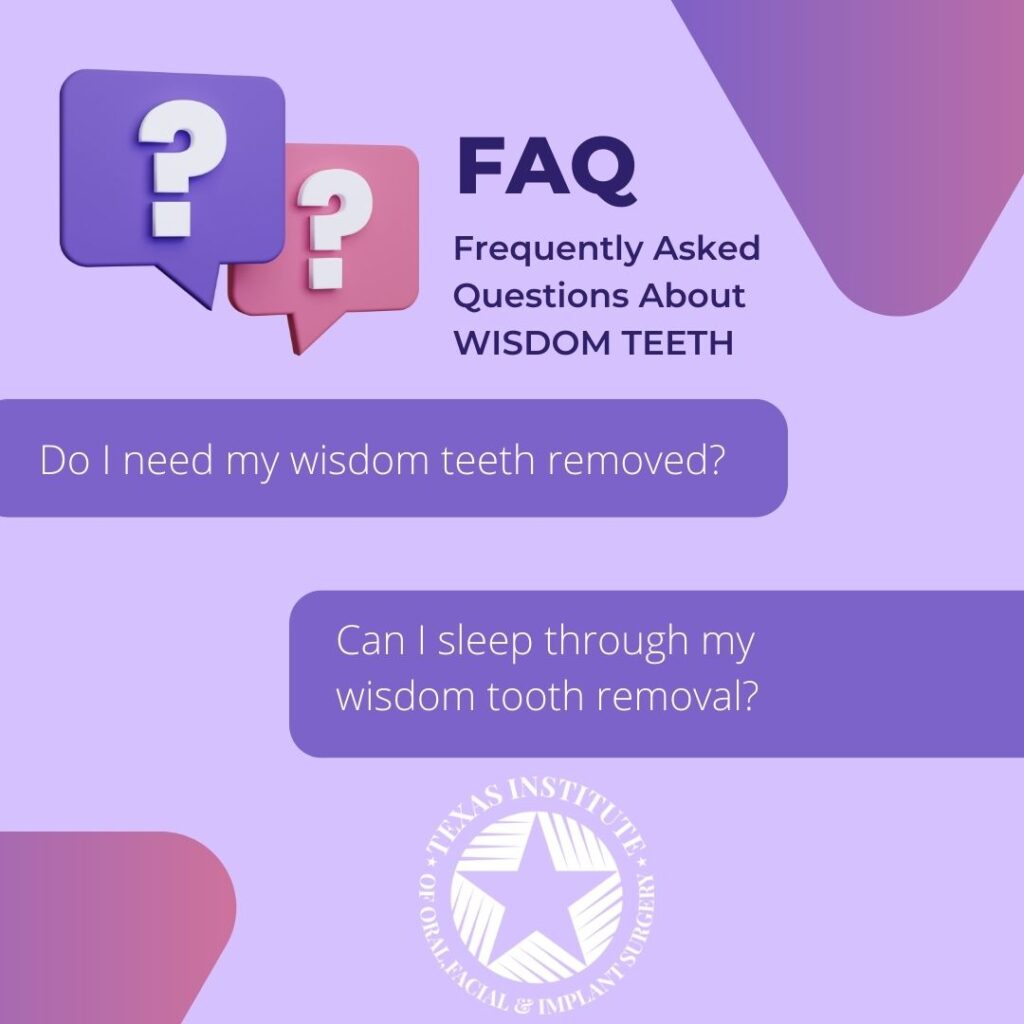
Wisdom teeth, or third molars, are something most of us have. Not everyone who develops wisdom teeth needs to have them removed. Some people go their entire lives without any issues or needing to have them extracted.
Here are a few FAQs to help you get to know a little more about wisdom teeth.
What Are Wisdom Teeth?
Your third molars are your final set of adult molars and they are usually the last set of teeth to erupt. They tend to start coming through the gums between the ages of 16 to 25 years of age. We typically call them “wisdom teeth” because we’re older when we get them.
What Problems Can Wisdom Teeth Cause?
When wisdom teeth begin to erupt, they can begin to cause issues for some patients like spacing and crowding concerns. Growing in the wrong direction can cause wisdom teeth to put pressure on the teeth positioned in front of them, resulting in damage to the tooth and nerve of otherwise healthy teeth. An impacted tooth can be stuck inside of the bone or behind the second molar and cannot erupt properly. This can lead to pain and swelling.
What about partially erupted wisdom teeth? Their location puts them at a high risk for gum disease and tooth decay, which can jeopardize neighboring teeth.
When Should I Have My Wisdom Teeth Checked?
Regular check-ups are very important for everyone. If you have a teenager, a special x-ray around age 15 or so will allow us to assess their wisdom teeth. Monitoring the growth of their teeth over the next few years allows dentists to screen for potential issues in the future (to help prevent dental issues before they start.) If there are any concerns, our oral surgeon will discuss the next steps. The high school and early college years are the best times to have wisdom teeth removed.
What Are Some Wisdom Tooth Symptoms to Look For?
An impacted wisdom tooth can cause a variety of symptoms such as:
- Swelling in the gums
- Pain or discomfort
- Difficulty biting or chewing
- Facial swelling
- An unpleasant taste in the mouth
What Should I Expect From Wisdom Tooth Removal Surgery?
Impacted teeth need to be surgically removed to prevent damage and infection in the tissues and teeth around them. For your comfort, you will be sedated during the procedure. Then, a small incision will be made in the gums so the tooth can be accessed and removed. Sometimes it may be necessary to segment the tooth in order to remove it. Once out, the area will be medicated and we’ll give you strict instructions on how to care for the surgical site as it heals. We do not place sutures, as this allows the most holistic healing process for our patients.
How Long Is Wisdom Tooth Removal Recovery?
Recovery after wisdom teeth removal can take an average of 7-10 days. Each situation is different and should be monitored accordingly. Very important aftercare instructions will be provided and should be followed in order to ensure a successful recovery.
Wisdom Tooth Consultations in Midlothian, Cedar Hill, and Waxahachie
For questions about your or your teen’s wisdom teeth, contact Texas Institute of Oral, Facial & Implant Surgery. We encourage you to reserve a no-obligation exam with our surgeon to determine the best needs for your smile. Call us today to get started.



